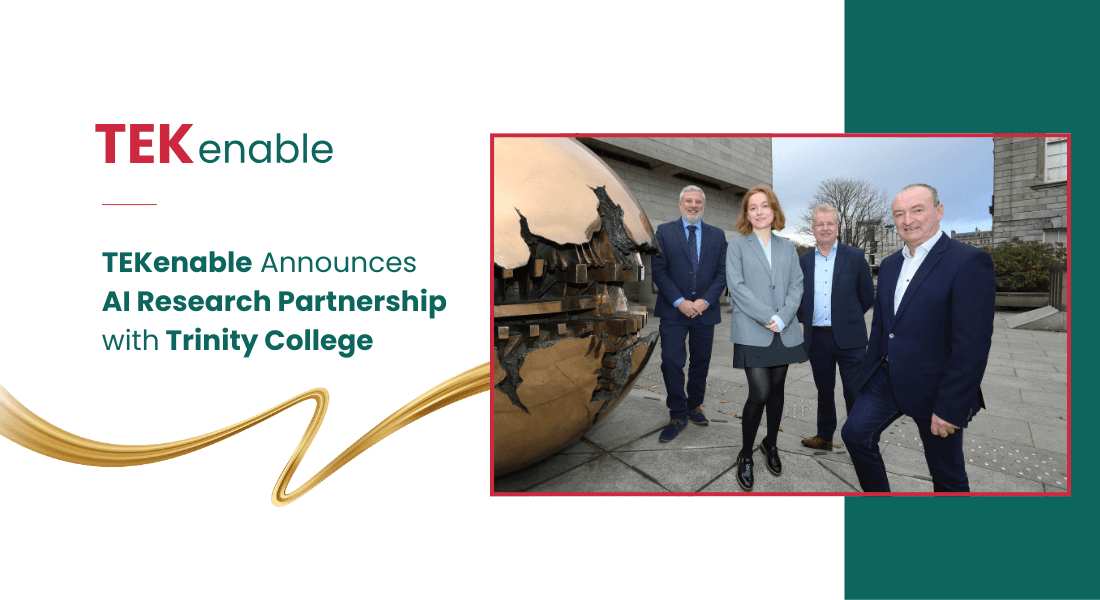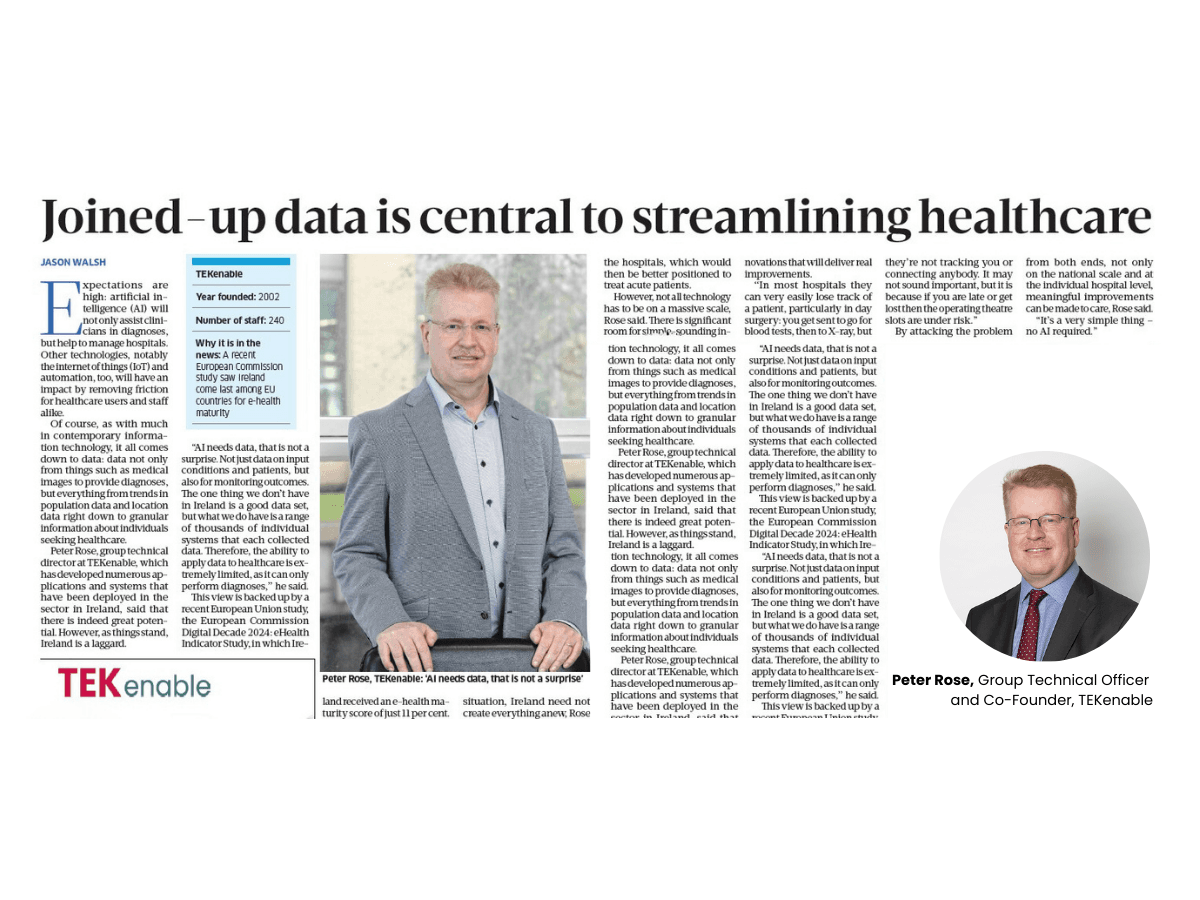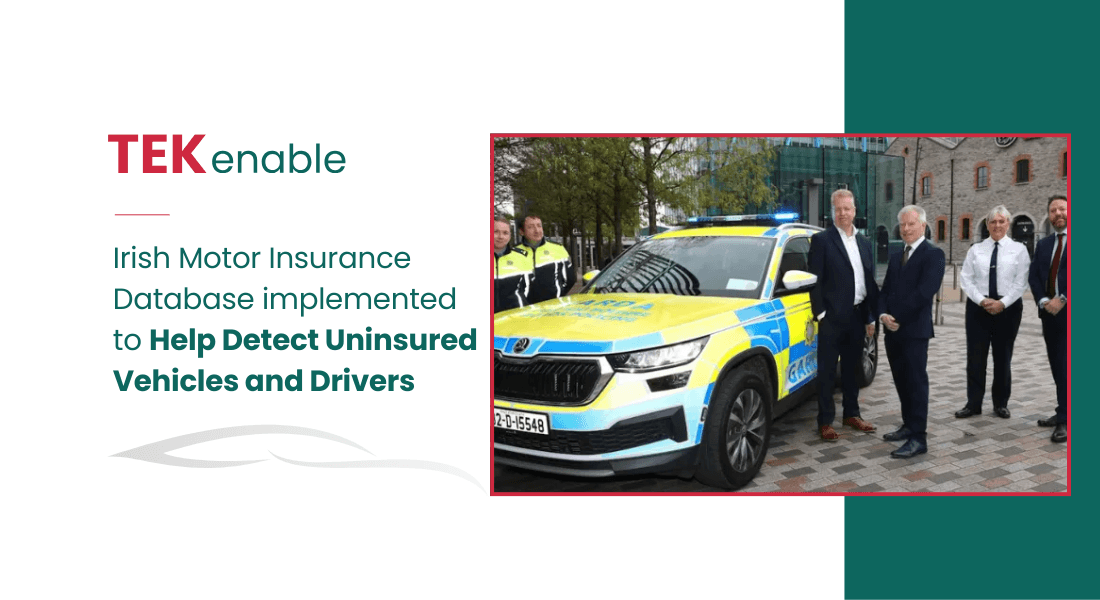Nick Connors explains why low code is the way to go
When TEKenable entered the software industry in Ireland in 2002, it offered bespoke, high-code, built-from-scratch software solutions to various clients. But after a few years it elected to change tack, pivoting instead to offering what are called low-code solutions.
Low-code offers, as Nick Connors, managing director of TEKenable, put it, “functionality out-of-the-box”. Existing platform tools (or in the case of TEKenable, a Microsoft Gold partner, various Microsoft platforms) are configured and, if required, expanded upon to suit a client’s individual needs.
Pre-made tools are like perfectly shaped mosaic tiles in want of someone with the suitable skills and vision to arrange them: this is where TEKenable comes in.

Users are dealing with lines of code that have already been exhaustively tested, products that have already been proven to work in harmony together.
Nick Connors – Managing Director TEKenable
When writing code from scratch, there are more opportunities to make mistakes. One bad line of code is enough to render an entire platform useless, and discovering these bugs, particularly in a live environment, can throw a project-delaying spanner into the works.
Testing software solutions is, Connors said, one of the most cost-intensive elements of implementing new platforms. “I’d say 30 per cent, maybe 40 per cent of the cost of delivery goes into testing, whereas you can remove that on the platform. With low code, you remove huge amounts of risk in relation to delivering these projects.”
Low code platforms, Connors said, can also be prepared and go live “very quickly”. This particular trait has proven useful for clients in the age of Covid-19, when time to adjust is not a luxury many businesses have.
One of TEKenable’s most recent high-profile offerings was when it partnered with Microsoft to build the HSE’s Covid-19 Track and Trace platform in March 2020, shortly after the pandemic was declared.
“Within three weeks, we had the core platform in place and hooked into eight different call centres. If we had to build that same system bespoke, it could have taken us six months to build the same functionality, as well as testing that.”
More broadly speaking, Covid-19 pushed many companies that may have been previously hesitant to come off legacy systems and embrace more technology-driven, cloud-based solutions. Pre-pandemic, Connors said, these firms often viewed digital transformation as a longer-term project, one they did not view with any real sense of urgency.
“Covid-19 actually forced their hand. Now that they’ve made that transformation, or are in the process of doing that transformation, they say: ‘My God, why didn’t we do it years ago?’ as it significantly reduces costs.”
In December 2020, TEKenable secured €1.6 million in funding from the Goodbody EIIS Fund to support its international growth. Connors said that the firm plans to primarily expand its presence in Britain, though it is also eyeing expansion in Spain, France and Italy – the latter two of which will be new markets for TEKenable.
It hopes to grow its existing London office and open up two further British-based locations. Connors estimated that TEKenable’s British operation may possibly grow to outsize its Irish one, which is currently its largest wing.
Connors acknowledged that this strategy goes somewhat against the grain. Most businesses are retreating from Britain post-Brexit and flocking to EU member states.
“We see that as an opportunity,” Connors said. “The customers we’re talking to, they are happy to continue to work with us and we’re still winning a lot of work in the UK. There is a dearth of the skills we have in Britain.”
Connors said that cloud solutions can make navigating Brexit-related logistical pain points more manageable, and more frictionless, for clients.
“The solutions we’re delivering actually help companies struggling with [logistical issues] in that the old paper processes and the tracking of vehicles and the tracking of products can be done all in the cloud.”
Furthermore, solutions such as those offered by TEKenable can, Connors said, open up new avenues for companies.
“It gives them functionality that they never had. With the mobile capability with these platforms, you’re connecting your business to all these endpoints that old legacy systems never could.”
TEKenable’s recent acquisition of Irish technology company Greenfinch expanded its British client base. This was one of the primary reasons Greenfinch was a desired acquisition, along with the firm’s expertise in Microsoft mobile and cloud platforms such as Xamarin, Microsoft Dynamics and Microsoft BI.
Connors said: “Greenfinch are experts in Xamarin. We didn’t have the deep skills that they had, so we felt that would fit in nicely with our low-code approach to customers.”
Connors said that a solution that TEKenable set up for the British Horse Racing Authority is partially why horse racing was able to return in Britain and Ireland so quickly.
Just as the human race is dealing with illness outbreak, so too is the equine world. Specifically, outbreaks of a dangerous strain of equine herpes brought racing events in Spain to a screeching halt in February, and sparked fears in the industry that the illness could spread further.
It brought the need for a seamless process for verifying equine vaccinations into sharp relief. Previously, horses would have to go to racecourses and have physical, on-paper vaccine passports assessed by veterinarians before every race.
TEKenable produced the Weatherbys Vaccination App, a cloud-based platform that removes the need for manual passports and manual testing.
“The vets, the owners, the trainers and the regulators for racing all use this platform to monitor and track vaccinations of horses,” Connors said.
“It has allowed horse racing to get back very quickly in Britain and Ireland.”





